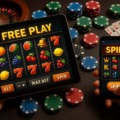Should you trust your gut or crunch the numbers first?
Photo by Yan Krukau via Pexels
If you’ve ever thrown down a bet, bluffed your way through a hand, or sat through the last few seconds of a match with your pulse pounding, you know exactly what I’m talking about.
That dang question just sticks: trust your instincts or play the stats?
This isn’t just a poker player’s brain freeze—it’s something anyone even remotely into gambling wrestles with, be it casino floors, betting apps, or trying to win that fantasy league.
Some folks live for the buzz of intuition—thinking their gut and years of experience can see what the cold, hard numbers miss.
Then there are people who just refuse to do anything without running the odds, gaming every outcome, and clinging to stats like a lifeline.
Here’s the deal: if you want to win, you can’t just pick one camp and ignore the other. The real pros? They know when to follow their instincts and when to let the numbers steer the ship.
Stick around, because we’re diving into how to actually mix those two for better bets—and what science says about making split-second choices when the heat is on.
Gut feelings vs. spreadsheets: what the felt actually teaches you
Everyone who’s even halfway serious about gambling hits this crossroads: Do you ride your instincts, or crunch the numbers ‘til your brain hurts?
I’ve watched poker lifers shove it all in on nothing but a vibe (sometimes genius, sometimes… not), and next hand, fold because the stats were screaming “don’t do it.”
This juggle between intuition and cold, hard math isn’t just posturing—it’s how you tell the fluky from the folks who clean up for years.
Sites like pokeriomokykla.com are loaded with nerdy stuff to sharpen your number game. Odds calculators, breakdowns that actually make sense, live coaching that translates probability into English. Handy.
But math on its own? Won’t cut it. Every table’s got its own weird energy, and people are unpredictable. That’s where your gut comes in—the sense you get after grinding out thousands of hands. It’s not some mystic gift—it’s just experience, picking up on tiny patterns and all the little tells you can’t quantify.
The best players I’ve ever seen? They bounce between both. Sure, they’ll run the EV numbers, but ditch them mid-hand if someone’s acting off. Math and instinct are always arguing in your head—especially when the pressure’s up and the chips are real.
If you want to win more than just that one lucky night, don’t pick a side. You gotta know when to trust the numbers, when to follow that hunch—and have tools sharp enough to hear them both.
The science of gut feelings: why your instincts sometimes nail it (and sometimes totally whiff)
Your intuition? Not some woo-woo sixth sense. It’s really just your brain pulling tricks—drawing on years of experience, spotting familiar patterns, and quietly crunching way more info than you realize, all behind the scenes.
If you’re into gambling, poker, or sports betting, your gut might tip you off to an opponent’s move or an unexpected opportunity way faster than your logical brain could ever keep up.
But, hey, don’t get cocky. Intuition can lead you way off track too. It’s tangled up with memory and emotion—which means, sure, it can work wonders, but it’ll burn you if you trust it blindly.
The sharpest players know exactly when to ride their instincts and when to pump the brakes. By figuring out where your gut shines and where it trips you up, you can turn that “feeling” into a legit advantage—not just an expensive screw-up.
How the pros get that spooky sixth sense
Poker vets and pro bettors aren’t just running on dumb luck when they go with their gut—they’ve logged the hours and put in the grind that sharpens their instincts for real.
After playing zillions of hands or binge-watching matches, your brain starts picking up on stuff normal folks totally miss. What seems like “just knowing” is usually a lightning-fast mental calculation—your mind flicking through past outcomes before you even know it.
This is why old-school pros sniff out bluffs or spot wild plays in a split second. Their instincts are locked in by actual experience, not fairy dust or wishful thinking. With enough reps, you just build an inner compass no rookie can fake.
Brain traps: how your intuition can play you
Doesn’t matter how many games you’ve played—your gut can absolutely mess with you if you aren’t paying attention. Overconfidence? It’ll have you trusting every vibe, even when it’s dead wrong.
And don’t forget confirmation bias—it’ll make you see “evidence” that backs whatever you already want to believe, while ignoring all the facts that don’t fit. In gambling, that’s chasing phantom trends or reading way too much into nothing, especially when the pressure’s on.
I’ve watched solid players lose it just because they couldn’t stop riding their gut without reality-checking. If you want your intuition to actually help instead of blowing up in your face, you’ve gotta spot these mental potholes.
Gut wins: legendary stories where instinct paid off
The high-stakes world is packed with legendary tales of trusting your gut and watching it pay off big. Look at Chris Moneymaker’s wild bluff in the 2003 WSOP—a spur-of-the-moment move that changed everything for him and turned the poker world upside down.
Same goes for sports betting: there are loads of stories where someone ignored the obvious call because they caught a last-second vibe about the game flow or a player’s headspace. That’s why everyone’s still obsessed with intuition—sometimes, it really does deliver magic.
Intuitive Decision-Making in Sports: Fresh research in the International Review of Sport and Exercise Psychology (2024) shows that split-second decisions can make the difference in crazy high-pressure situations—just don’t mistake them for pure luck, because it turns out experience and timing matter way more.
Let’s crunch the numbers: where analysis rules—and where it totally doesn’t
If you’re into gambling, poker, or betting on sports, you probably worship at the altar of numbers. Odds, probabilities, cold hard stats—you live for this stuff. It’s the backbone of anyone’s “smart” strategy.
But even if math gives you an edge, it’s not bulletproof. The slickest models can’t see every curveball, fluke, or wild human move coming—on the table or out on the field. Nope.
The real trick? Knowing when to trust the math—and when it’s time to pump the brakes and look up from your calculator.
Probability, EV, and not blowing up your bankroll
If you want to stop making boneheaded bets, you need to get what probability and expected value are all about. These are what help you figure out whether a play is going to juice your account long term, or just torch it.
Expected value (EV) tells you what you’ll win or lose on average every time you make a move. Comparing EV between options—like, do I call or fold this poker hand?—is how you make numbers work for you, not against you.
But here’s the kicker: risk management. Even the “right” move can torch you if you forget about variance or go way too deep. Keeping your bankroll intact is what lets the math actually do its thing. Unless you like going bust before the stats catch up.
Numbers hit a wall: what math can’t figure out
No matter how deep you go with your analysis, straight-up math has its limits. Real games have unknowns—secrets, funky table energy, and people who do totally random or ridiculous things on a whim.
Even online betting platforms—yeah, the ones flexing about “big data”—run into problems the second something weird happens. According to a December 2023 report from the National Council on Problem Gambling, most state laws and analytics in online sports betting totally miss the mark when it comes to actually protecting folks. Why? Because you can’t just crunch human chaos—like a sudden meltdown or one-in-a-million scenario—into a neat spreadsheet.
Let the numbers steer you, sure. But don’t get so obsessed you miss what’s really unfolding in front of you—live, messy, and unpredictable.
Making math and street smarts work together
The real killers I’ve seen—yeah, both watched and faced—aren’t robots. They build their game on stats, sure, but always tweak their play based on their gut and what’s happening right then and there.
Sometimes that means catching a tell, reading a weird betting line, or just knowing someone’s full of it—even when the math says you should fold. The best blend cold calculation with instincts sharpened by grinding through endless hands, games, and table drama.
That’s how you get to next-level decision-making—mixing logic and real-world wisdom. And honestly? That’s usually what sets apart the solid players from the ones who are actually dangerous.
How to actually get an edge: mixing gut feelings with cold, hard analysis
If you’re looking to get better at poker, tossing bets on sports, or just rolling the dice, you kinda need to use your whole brain. Going all-in on stats? Good luck when things go sideways. Trusting only your gut? Enjoy blowing through your cash.
The sharpest players, though, don’t pick a side. They figure out how to let math and instincts play nice together. It’s not an either/or thing—you just gotta learn when to swap modes and roll with whatever comes at you. Here’s how you can actually get that edge.
How to grow some instinct and beef up your analysis
Start by running through mock hands or tossing some super low-stakes bets. Repeating those drills? That’s how your brain starts spotting stuff faster, and you’ll get less rattled crunching numbers when the pressure’s on.
I’m all about those rapid-fire scenario drills—forcing myself to make decisions quick, then going back to see if my gut or logic was actually right. That’s what tunes up your instincts and your math game. Oh, and combing through hand histories or checking out how other folks play? Gold for getting a feel for what’s “normal”—and when things get weird.
Do this stuff long enough and you’ll just start thinking in odds—even when you don’t mean to. That frees up your intuition to really kick in when the heat’s on.
Keep your mind loose: things change fast
No two games play out the same, especially when real money’s up for grabs. That’s why you need to be just as alert in the moment as you are prepped from practice.
If someone suddenly shoves all-in or your favorite team begins to tank, clinging to either your gut or your math can blow up in your face. Flexibility in your head lets you actually pause and ask, “Wait, do my numbers still make sense here—or should I trust my gut this time?”
The real magic? It’s all in being able to switch it up—tighten up your play mid-session, or screw the numbers and follow a hunch when new stuff hits the table. Adapt or get wrecked.
Don’t go it alone: what you pick up from other humans
No rule says you’ve gotta be a one-person think tank. Swapping hands with friends, or arguing plays in forums, shows you how other folks juggle stats and that little voice inside. Sometimes they see holes in your logic you didn’t even know you had.
Group coaching is a big cheat code for building both sides of your game—somebody else will catch stuff you glossed over. There’s this example from 2023: Community Poker Training at Run It Once, where players got better fast just from live feedback and crowd-sourced smarts. Point being: if you keep tapping into what the community knows, you’ll keep sharpening both your instincts and your analytics. Win-win, really.
Wrapping it up: Knowing when to trust your gut (and when to trust the numbers)
The savviest gamblers out there? They get that there’s no secret sauce for nailing every decision. Sometimes your instincts catch things analytics totally miss. Then again, sometimes cold, hard logic saves you from chasing a stupid hunch.
The real pros? They’re the ones juggling gut feelings and cold stats on the fly. They level up both sides and use whichever comes in handy—whether they’re facing a massive decision at the poker table or firing off a sneaky wager during overtime.
If you’re up for sharpening both your intuition and your analytical chops, you’ll not only level up your win rate—you’ll actually enjoy that crazy, unpredictable thrill that makes gaming such a blast in the first place.






Leave a Reply
Want to join the discussion?Feel free to contribute!